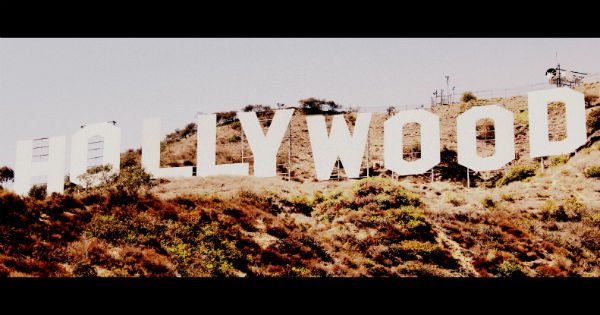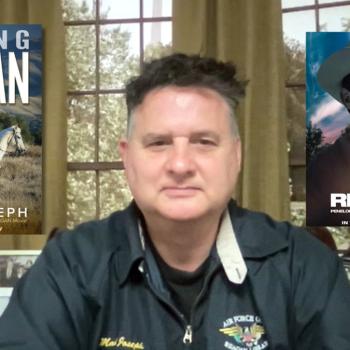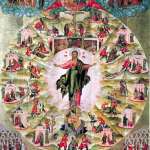 Back when I was a full-time entertainment journalist, I was once in a table reading for a Fox animated comedy, and a joke written into the script — not for air, just for the entertainment of the room — called Sarah Palin the c-word (you can find teeshirts from the time that say the same thing , and one comedian Tweeted it).
Back when I was a full-time entertainment journalist, I was once in a table reading for a Fox animated comedy, and a joke written into the script — not for air, just for the entertainment of the room — called Sarah Palin the c-word (you can find teeshirts from the time that say the same thing , and one comedian Tweeted it).
Everyone laughed uproariously, aside from me and one of the actors (who is known to be a Christian). I didn’t laugh after that. When the producer later noted that I had withdrawn from the general jolly tone, I said that I didn’t appreciate hearing a real woman who was also a mother called such a name, even in jest. He looked at me like I had three eyes.
My exposure to Hollywood — and as a journalist, I often got the gentler side of it, so who knows what goes on in writers’ rooms when no reporters are present — was enough to let me know that hearing women talked about in sexualized or unflattering terms (to put it mildly) is common as grass.
Anyone watching TV dramas and comedies — especially pay-cable ones — knows that the brutal murder, abuse and rape of women (preferably beautiful, scantily-clothed ones) is Hollywood’s stock in trade. Second only to that is the sexualized depiction of children (and violence against them, and having them commit violence), and the joy screenwriters seem to take in putting foul language in the mouths of babes.
Increasingly, we’re also seeing the objectification of men as well. Some say turnabout is fair play, but adding to the trash heap doesn’t make it smaller.
Entertainment has steadily become cruder, ruder, grosser, more explicit, more sexualized, raunchier and massively more brutal. Pornography isn’t just for sex anymore, it can also apply to screen gore and violence.
Don’t get me wrong, I’m not a prude. I’ve watched and appreciated shows like “Deadwood,” “The Sopranos,” etc., that featured terrible behavior, language and violence, in the context of their stories and settings.
But “50 Shades of Gray” and “Game of Thrones” make these shows look like “Mister Rogers’ Neighborhood.”
And, here’s Entertainment Weekly‘s defense of a rape scene in the premiere of HBO’s “Westworld”:
Then the MiB turns his attention to Dolores and drags her by her hair off the barn, caveman style, to have his way with her.
This scene … I don’t think I’ve ever known a scene to provoke such a wide spectrum of reactions. Some seemed to outright despise Westworld for this moment, decrying it as another example of Hollywood’s overactive use of rape and pay cable’s fetishization of sexual assault. At the other end of the spectrum, there were two editors (a man and a woman) in recent weeks who texted me after watching the pilot screener literally asking, “Where was the rape scene?” (It’s not shown, after all, but strongly implied). So for some viewers, the sequence was such an enormous affront, it’s practically all they remember from the pilot. While others somehow didn’t even realize it happened.
If you strongly feel the scene is unnecessary and offensive, and there’s no reason for any show to have content like this, then perhaps skip to the next page. You and I are hopefully starting a long recapper-and-reader relationship, and I frankly don’t want to lose you over a difference of opinion about a single scene in the first episode. But if you’re open to some debate on this, let me take a swing at making a case for why this scene isn’t like typical TV violence.
The scene may indeed be defensible in the context of the story, but does this story have to be told at all? In Hollywood’s rush to push the boundaries of what can be shown — and to mine its archives for old stories that can be reworked — the question of whether these shows should exist at all doesn’t appear to be a major consideration. I’m a believer in creative freedom, so HBO can do what it likes, but it also has to be held accountable for the material it chooses to make.
So the next time that Hollywood is shocked, just shocked, that people involved in the entertainment industry say crude and nasty things in private conversations, they should listen to themselves — and what they put on the page and the screen.
You can legitimately argue whether entertainment follows culture or vice versa, but whether it’s the locomotive or the caboose in the increasing vulgarity in America, showbiz is happily along for the ride.
UPDATE: Click here for similar sentiments from a pop-culture writer at the Washington Post. And click here for Heather MacDonald’s excellent take on “Trumped-Up Outrage” and what women have to do with it all.
Image: Courtesy Wikimedia Commons
Don’t miss a thing: head over to my other home at CatholicVote and like my Facebook page; also like the Patheos Catholic FB page to see what my colleagues have to say.

















